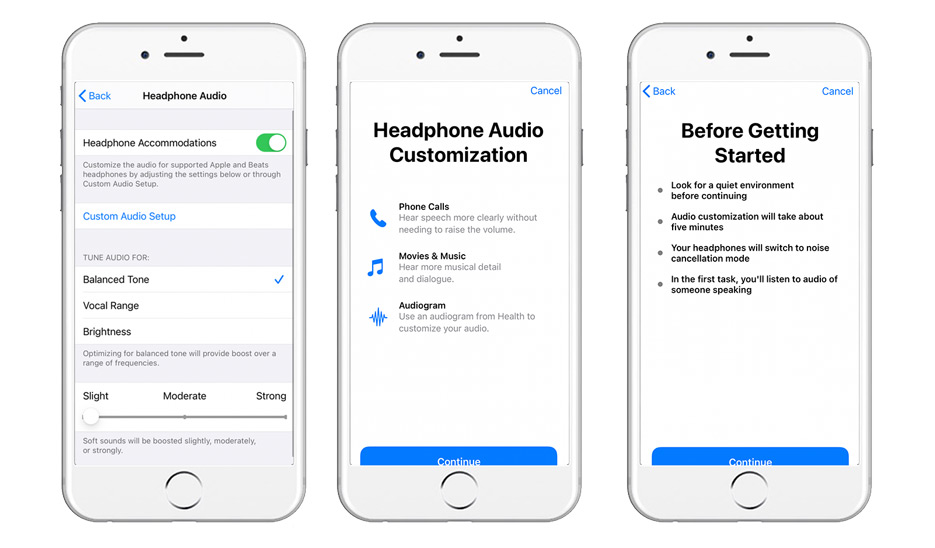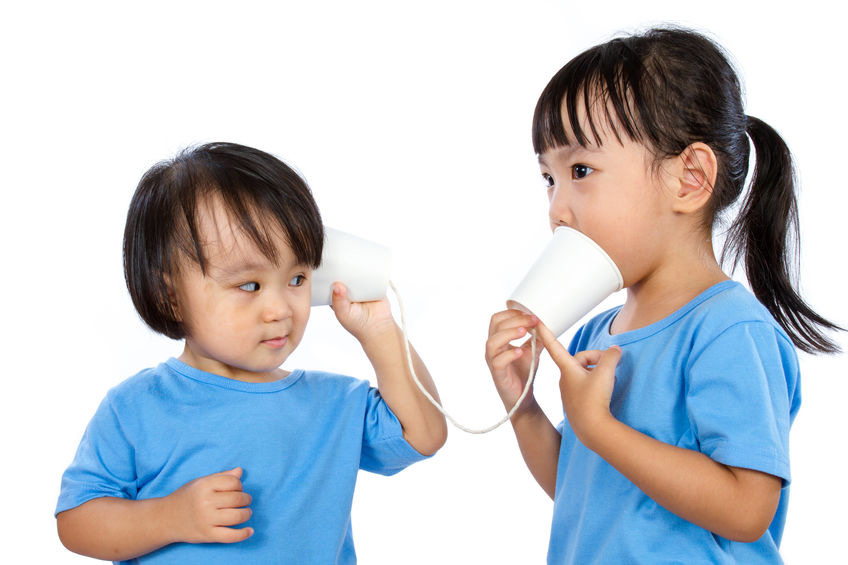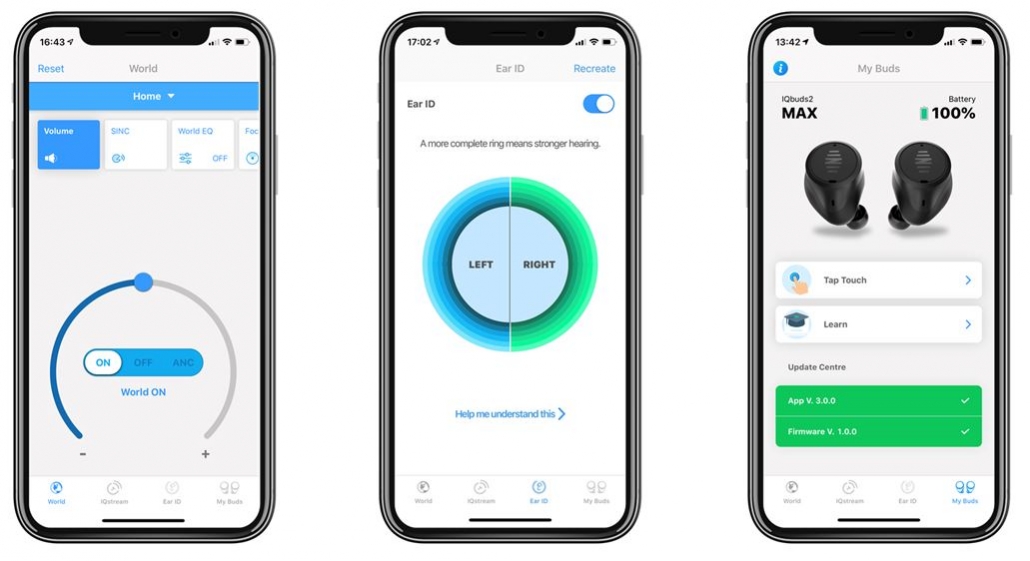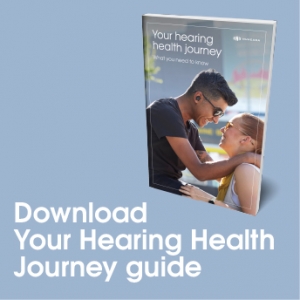
With their release of iOS 14 last year, Apple announced a number of new accessibility features. Among these are the new “Headphone Accommodations” controls, which some users suggest now make Apple AirPods Pro functional as hearing aids. Before diving in to the accuracy of that claim, here is the specific text from Apples announcement last Summer:
“Accessibility features include Headphone Accommodations, which amplifies soft sounds and tunes audio to help music, movies, phone calls, and podcasts sound crisper and clearer” – Apple reimagines the iPhone experience with iOS 14
This new feature is compatible with a number of Apple and Apple affiliated devices including AirPods Pro, AirPods Max, Beats Studio 3, and Beats Solo Pro. If you attempt to access the custom audio setup features using any other headphones or earbuds, you’ll get an alert that says “Headphone Not Supported.”
What Headphone Accommodations Does
So does this new feature suddenly enable AirPods Pro to work as hearing aids? For starters, from an FDA approval perspective, the answer is a resounding no. In order to access a product that is FDA approved as a hearing aid (for now), one must go through a licensed audiologist and obtain a prescription. That may change with the eventual issuance of FDA guidelines for the 2017 Over-the-Counter (OTC) Hearing Aid Act. However, at this point, there are no OTC hearing aids approved by the FDA. Some products tout that they are “FDA registered”, but that is somewhat of a meaningless designation as explained by TruthInAdvertising.org:
“Class I devices are generally not subject to any premarket review by the FDA but still must register with the FDA. These products are sometimes marketed as “FDA registered” or “FDA listed,” but that’s like saying you’re on a guest list for entry into a nightclub that pretty much everyone gets into.”
Headphone Accommodations or not, AirPods Pro are neither FDA approved, nor registered. However the feature does offer some basic hearing assistance. As suggested by the images below, the app takes the user through a brief hearing assessment. From that process, it creates a customized audio setting that can be toggled on or off by the user:

IQbuds2 MAX
Advanced hearing bud technology personalized to your ears.
IN STOCK READY TO SHIP
Live Listen Mode
Prior to Headphone Accommodations, Apple users previously touted another pre-existing feature known as Live Listen. While some suggested that this feature enabled AirPods to be hearing aids, that’s a fairly exaggerated claim. Essentially Live Listen uses a phone or tablet as a microphone. So hypothetically you could place it on the dinner table in front of your companion, and their voice would subsequently be amplified in your earbuds.
Here is a description of Live Listen functionality from a 2018 article on How-to Geek:
“When you enable Live Listen, your iPhone or iPad functions as a remote microphone that captures audio, reduces noise, and increases the volume before sending it straight to the AirPods in your ears.”
Find an alternate representation of the basic concept used in Live Listen below:

So Can You Use AirPods as Hearing Aids?
The new features are nice and offer Apple consumers some new functionality. However, AirPods and other Apple earbuds still do not qualify as hearing aids. A more appropriate comparison would be to look at devices like AirPods Pro vs IQbuds2 MAX and other hearables. As stated earlier, no hearables or PSAPs currently qualify as FDA-approved hearing aids, but many offer significant hearing enhancement features nonetheless.
Nuheara has been immersed in personalized hearing functionality for their earbuds since the debut of the original IQbuds in 2016. Aside from being among the first companies to offer hear-through functionality for earbuds, consider the technology packed into IQbuds2 MAX.
The initial Ear ID hearing assessment uses the same NAL-NL2 prescription formula used by audiologists around the world. The assessment frequencies used to personalize the hearing experience through the IQbuds are:
- 500Hz
- 1000Hz
- 2000Hz
- 3000Hz
- 4000Hz
- 6000Hz
In addition to the auto-calibration done based on the user’s Ear ID profile, there are a multitude of other features available to an IQbuds user. These functions empower the individual to fine-tune the volume of the outside world, the balance of speech versus noise, the EQ of surrounding world noise and even the strength of sound by direction.

What Consumers Have to Say About AirPods for Hearing Enhancement
For existing Apple consumers and owners of AirPods or AirPods Pro, developments like “Headphone Accommodations” are certainly exciting. The improved functionality helps improve speech and sound in some situations for users with mild hearing loss. However, there do appear to also be limitations. Some of the limitations are evident in the comments on a recent post by HearingTracker.com. Here is a brief sampling:
“The AirPods definitely suffer from at least a mild occlusion effect despite what may be pressure vents. My HAs do not because they have small domes which work well for me.”
“The AirPods produce significant white noise when any adjustments are applied. For instance, there is a slider to adjust the effect of brightness, vocal, or balanced tones, and anything above the “slight” setting is too distracting because of white noise”
“Overall, the Airpods are a step forwards, but not HAs. I enjoy them for music and the audio quality is good but not superb. Unlike HAs, they lack a volume control on the earbuds themselves.”
AirPods Pro are a wildly popular product and undoubtedly well-constructed. However when it comes to hearing enhancement and affordable devices that may act as an alternative to a hearing aid, there are probably better options for most people. Don’t just take our word for it. Hear what Naval Reservist, Cyber Security Specialist, and Nuheara customer Mark Anthony has to say about it:


